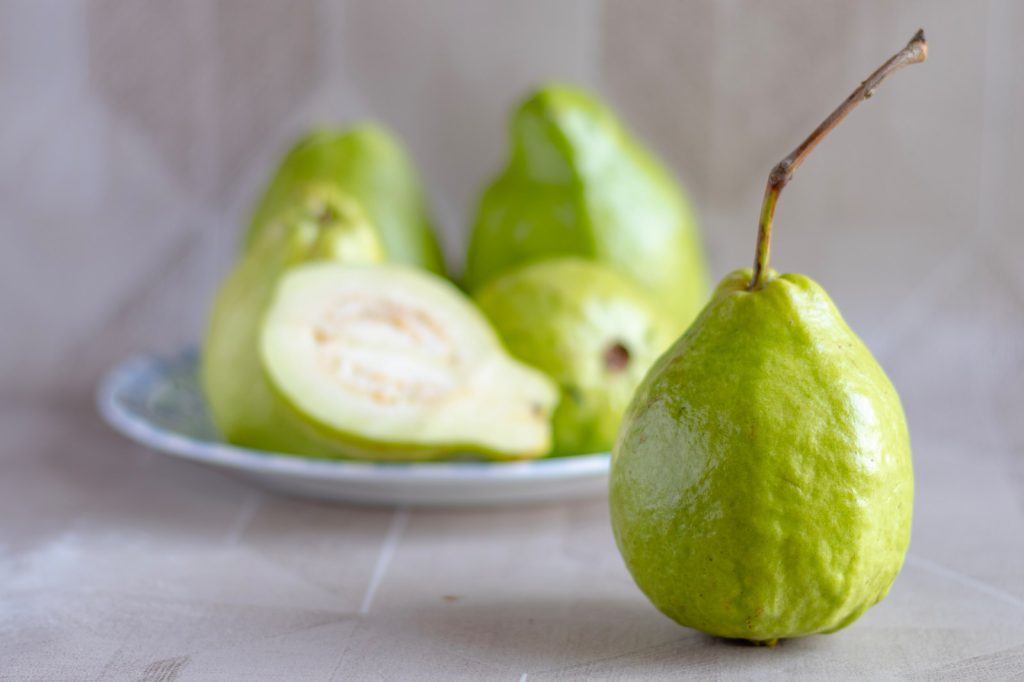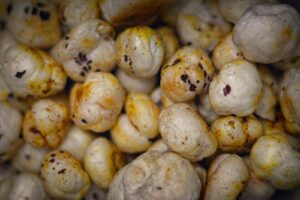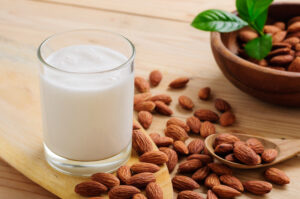Guava is a tropical fruit that is known for its sweet and tangy flavor. It is packed with essential nutrients and offers numerous health benefits. However, many people wonder if it is suitable to consume guava at night. In this article, we will explore the topic and discuss whether it is advisable to eat guava before bedtime.
The Nutritional Health Benefits of Eating Guava at Night
Guava is a tropical fruit that offers a wide range of nutritional benefits. It is not only delicious but also packed with essential vitamins, minerals, and antioxidants. While it is often enjoyed as a daytime snack, many people wonder if it is suitable to eat guava at night. In this article, we will explore the nutritional benefits of consuming guava in the evening and why it can be a healthy choice for your bedtime routine.
A Rich Source of Vitamin C
Guava is renowned for its high vitamin C content. In fact, it contains more vitamin C than oranges. Vitamin C is a powerful antioxidant that helps boost the immune system, protect against free radicals, and support overall health. By eating guava at night, you can provide your body with a significant dose of vitamin C, which aids in repairing and maintaining body tissues.
Fiber for Digestive Health
Another notable nutritional benefit of guava is its fiber content. Fiber plays a crucial role in maintaining a healthy digestive system. It promotes regular bowel movements, prevents constipation, and aids in the proper absorption of nutrients. By consuming guava at night, you can support your digestion and ensure a comfortable night’s sleep.
Low in Calories, High in Nutrients
If you’re conscious about your calorie intake, guava is a fantastic choice. It is a low-calorie fruit that allows you to indulge in a sweet treat without worrying about excessive calorie consumption. Moreover, guava is rich in essential nutrients such as potassium, folate, and vitamin A. These nutrients are vital for maintaining healthy bodily functions and overall well-being.
Antioxidant Powerhouse
Guava is loaded with antioxidants that help combat oxidative stress and reduce the risk of chronic diseases. The antioxidants found in guava, such as lycopene and beta-carotene, have been linked to a lower risk of certain cancers and heart disease. By incorporating guava into your nighttime routine, you can harness the antioxidant power of this tropical fruit and support your long-term health.
Hydration and Electrolyte Balance
Staying hydrated is essential, even during the night. Guava contains a significant amount of water, which can help quench your thirst and keep you hydrated throughout the night. Additionally, guava is rich in electrolytes like potassium, which play a vital role in maintaining proper fluid balance in the body. By enjoying guava at night, you can contribute to optimal hydration and electrolyte levels.
Promotes Relaxation and Sleep
Guava contains magnesium, a mineral known for its relaxing properties. Magnesium helps calm the nerves and muscles, promoting relaxation and quality sleep. Incorporating guava into your evening routine can provide a natural source of magnesium, aiding in a restful night’s sleep and helping you wake up refreshed in the morning.
Guava’s Effect on Blood Sugar Levels
Guava has a low glycemic index, which means it does not cause a sudden spike in blood sugar levels. This makes it a suitable fruit for individuals with diabetes or those trying to manage their blood sugar levels. Consuming guava at night can be a healthier option compared to sugary snacks that may disrupt blood sugar control.
Guava and Weight Management
If you are watching your weight, guava can be a great addition to your evening snack. The high fiber content in guava helps you feel fuller for longer, reducing the likelihood of overeating. Additionally, guava is a low-calorie fruit, making it an ideal choice for those aiming to maintain or lose weight.
Guava and Heart Health
The presence of potassium and soluble fiber in guava contributes to heart health. Potassium helps regulate blood pressure levels, while fiber helps control cholesterol levels. Incorporating guava into your evening diet can support a healthy heart and reduce the risk of cardiovascular diseases.
Guava and Immunity
Vitamin C is abundant in guava, making it an excellent fruit for boosting immunity. Regular consumption of guava can enhance the body’s defense mechanisms and protect against common illnesses and infections.
Guava and Eye Health
Guava is a rich source of vitamin A and antioxidants, which are beneficial for eye health. These nutrients help prevent macular degeneration, cataracts, and improve overall vision. Adding guava to your evening routine can contribute to maintaining healthy eyesight.
Guava and Skin Health
The high vitamin C content in guava promotes collagen production, which keeps the skin firm and youthful. It also helps in the prevention of skin damage caused by free radicals. Eating guava at night can provide nourishment to the skin and support its natural glow.
Guava and Dental Health
Guava leaves have antibacterial properties that can help maintain oral hygiene. Chewing guava leaves or consuming guava fruit at night may aid in preventing gum diseases and reducing bad breath.
Guava and Pregnancy
Guava is a safe and nutritious fruit for pregnant women. It is rich in folate, which is essential for the development of the baby’s brain and spinal cord. However, it is always advisable to consult a healthcare professional before making any significant dietary changes during pregnancy.
Guava and Allergies
While guava is generally considered safe, some individuals may be allergic to it. If you have a known allergy to guava or other tropical fruits, it is best to avoid consuming guava at night to prevent any adverse reactions.
Potential Risks Associated with Eating Guava at Night
Guava is a nutritious fruit that offers various health benefits. While it is generally safe to consume guava at any time of the day, including at night, it’s essential to be aware of potential risks and considerations. In this article, we will explore some potential risks associated with eating guava at night to help you make informed decisions about your dietary choices.
High Fiber Content
One of the potential risks of consuming guava at night is its high fiber content. While fiber is beneficial for digestion and overall health, consuming excessive amounts of fiber, especially before bedtime, can cause gastrointestinal discomfort, gas, or bloating. It is recommended to consume guava in moderation and pay attention to your body’s response to avoid any digestive issues.
Oxalate Content
Guava contains oxalates, naturally occurring compounds found in some fruits and vegetables. Oxalates can contribute to the formation of kidney stones in susceptible individuals. If you have a history of kidney stones or are at a higher risk, it is advisable to consult a healthcare professional before consuming guava at night or in large quantities.
Allergic Reactions
While rare, some individuals may have allergies to guava. Allergic reactions can vary from mild to severe and may include symptoms such as itching, swelling, hives, or difficulty breathing. If you experience any allergic reactions after consuming guava, it is important to seek medical attention immediately. If you are aware of a guava allergy, it is best to avoid consuming it, even at night.
Interactions with Medications
Guava is generally safe to consume, but it’s important to consider any potential interactions with medications you may be taking. Certain medications, such as blood thinners or antiplatelet drugs, may interact with guava’s high vitamin K content. If you have any concerns about possible interactions between guava and your medications, consult with your healthcare provider for personalized advice.
Blood Sugar Management
While guava is generally considered a good option for individuals with diabetes due to its low glycemic index, it’s important to monitor your blood sugar levels if you choose to eat guava at night. Everyone’s body reacts differently to different foods, and it’s possible that guava may cause a spike in blood sugar levels in some individuals. If you have diabetes or any concerns about blood sugar management, it’s best to monitor your levels closely and consult with a healthcare professional for guidance.
Common Myths About Eating Guava at Night
Guava is a delicious tropical fruit that offers numerous health benefits. However, there are several myths and misconceptions surrounding the consumption of guava at night. In this article, we will debunk some of the common myths about eating guava at night and provide you with accurate information to make informed decisions about including guava in your evening routine.
Myth 1: Guava Causes Weight Gain if Consumed at Night
One common myth is that eating guava at night leads to weight gain. However, this is not entirely true. Guava is a low-calorie fruit that contains high amounts of fiber, which promotes a feeling of fullness and helps control appetite. As long as you consume guava in moderation and maintain a balanced diet, it is unlikely to cause weight gain.
Myth 2: Guava Should be Avoided at Night as It is Difficult to Digest
Another myth suggests that guava is difficult to digest when eaten at night. While guava does contain dietary fiber, which aids in digestion, it is not inherently challenging to digest. In fact, the fiber content in guava can help regulate bowel movements and promote a healthy digestive system. As long as you consume guava in moderate amounts, it should not pose any significant digestive issues.
Myth 3: Eating Guava at Night Causes Acidity
There is a misconception that consuming guava at night can lead to acidity or heartburn. However, guava is an alkaline fruit, which means it has a pH level higher than 7 and can help neutralize stomach acid. Unless you have an underlying medical condition that specifically reacts to guava, such as acid reflux or gastroesophageal reflux disease (GERD), it is unlikely to cause acidity or heartburn.
Myth 4: Guava Should be Avoided at Night to Prevent Blood Sugar Spikes
Some people believe that guava should be avoided at night to prevent blood sugar spikes, especially for individuals with diabetes. However, guava has a low glycemic index, which means it causes a gradual rise in blood sugar levels. The fiber content in guava also helps regulate blood sugar levels. As a result, guava can be a suitable fruit choice for individuals with diabetes, even at night. However, it’s always important to monitor blood sugar levels and consult with a healthcare professional for personalized advice.
Myth 5: Guava Should Not be Consumed at Night Due to Its Cooling Effect
There is a belief that guava has a cooling effect on the body and should be avoided at night as it may lower body temperature and lead to discomfort. However, the cooling effect of guava is not significant enough to cause any discomfort or disrupt sleep patterns. In fact, the relaxation-inducing properties of guava, such as magnesium content, can contribute to a good night’s sleep.
Tips For Getting The Most Out Of Your Guavas
To fully enjoy the benefits of guavas, here are some tips:
- Choose Ripe Guavas: Opt for ripe guavas that are slightly soft to the touch and have a pleasant aroma.
- Wash Thoroughly: Wash guavas before consumption to remove any dirt or pesticide residue.
- Eat with the Skin: Guava skin is edible and contains additional nutrients, so consider eating the whole fruit if desired.
- Store Properly: Keep guavas at room temperature until ripe, then refrigerate to prolong freshness.
- Experiment with Recipes: Explore different ways to enjoy guavas, such as adding them to smoothies, salads, or enjoying them as a standalone snack.
Conclusion
In conclusion, eating guava at night can be a healthy choice, as it offers various nutritional benefits. Guava is rich in essential nutrients, supports digestion, regulates blood sugar levels, aids in weight management, and enhances sleep quality. However, it’s important to consume guava in moderation and be mindful of potential risks. By debunking common myths and following the tips provided, you can fully enjoy the goodness of guavas.
FAQs
Can eating guava at night cause acidity?
Guava is generally well-tolerated and does not cause acidity. However, individuals with pre-existing gastric issues may experience discomfort. It is recommended to consume guava in moderation and listen to your body’s response.
Is it true that guava helps in reducing wrinkles?
Guava’s high vitamin C content promotes collagen production, which can help reduce wrinkles and improve skin elasticity.
Can guava be eaten on an empty stomach at night?
Yes, guava can be eaten on an empty stomach at night. It is a light and nutritious fruit that can be enjoyed as a bedtime snack.
Does guava consumption interfere with medications?
Guava is generally safe to consume with most medications. However, it is always advisable to consult your healthcare provider if you have any concerns about potential interactions.
Is it safe to eat guava at night if I have diabetes?
Guava has a low glycemic index, making it a suitable fruit choice for individuals with diabetes. However, monitoring blood sugar levels is important.
Can eating guava at night cause weight gain?
Guava is a low-calorie fruit that can be enjoyed without causing weight gain when consumed in moderation.
Should I eat guava with or without the skin?
Guava skin is edible and contains additional nutrients. You can eat guavas with the skin if desired, after washing them thoroughly.








